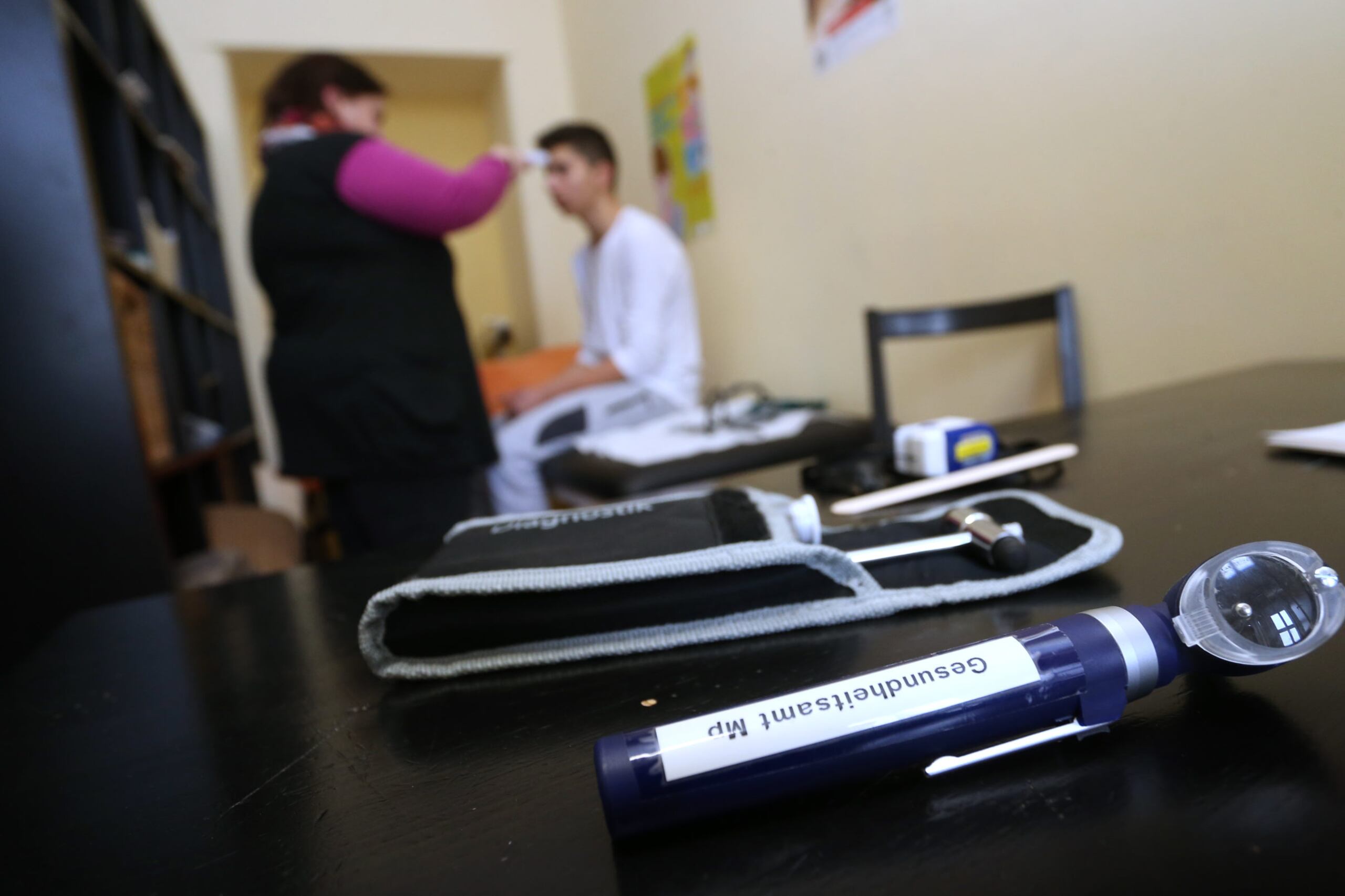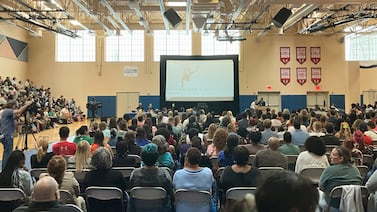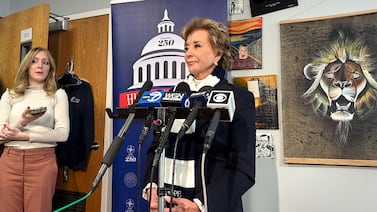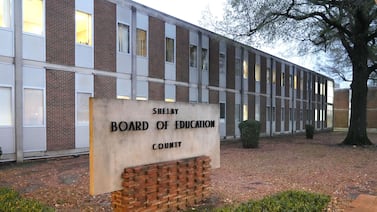Sign up for Chalkbeat New York’s free daily newsletter to keep up with NYC’s public schools.
New York City public schools could lose hundreds of nurses next year, as the city faces the expiration of billions of dollars in one-time federal COVID relief funds.
For years, many education programs have been propped up by the federal funds, including $65 million that supported roughly 400 contracted nurses, some of whom provide care at buildings that previously lacked a school nurse. But as that money dries up later this year, the future of those nurses and other school programs funded by the federal dollars remains uncertain.
Last month, officials announced the city’s Education Department would see its budget shrink by 2.4%, or $808 million, in the next fiscal year — largely spurred by the expiring federal funds. With the disappearance of the relief money, Mayor Eric Adams’ latest budget proposal allocated more than $500 million in city and state funds to preserve some of the programs it funded, including hundreds of social workers, staffers in homeless shelters, and preschool for 3-year-olds. Others, however, remain at risk.
Currently, every public school has a nurse or school-based health center, according to city officials. If a school nurse calls out sick or is otherwise unavailable, then a contracted nurse is deployed to that school to provide coverage.
“We’re grateful to the stimulus funding that has allowed us to ensure every school has a school nurse on site, and we will continue to advocate for and prioritize this need through the budget process,” said Jenna Lyle, a spokesperson for the city’s Education Department.
Prior to the pandemic, at least 137 schools serving roughly 70,000 students did not have a school nurse, according to Advocates for Children, an organization that works on behalf of low-income families.
Without a school nurse in the building, kids with particular health needs like those with asthma or diabetes are at a higher risk of experiencing complications, said Anna MacEwan, a former school nurse who previously worked at a K-12 campus in downtown Brooklyn. It also shifts further responsibilities onto teachers, she added.
“You have to have a nurse in the building … to manage all the things that come up,” MacEwan said.
Nurses also provide families with additional peace of mind, said Noelia Gomez, an after-school program director with Good Shepherd Services, a nonprofit organization that supports children and families.
“Having nurses gives families a safeguard,” she said. “Somebody that they can trust — that’s going to care for their child like they would at home.”
She noted her program serves more than 500 students at P.S. 246 in the Bronx, each of whom may at some point need medical attention or support.
“It’s a very scary thought,” Gomez said. “What happens if the nurse isn’t there?”
With the mayor’s proposed budget still subject to negotiations with the City Council, advocates and local lawmakers are continuing to push for funding for initiatives that have relied on the federal dollars. The city must finalize its budget by July 1.
Council members will discuss the city’s Education Department budget at an Education Committee hearing on Wednesday.
Julian Shen-Berro is a reporter covering New York City. Contact him at jshen-berro@chalkbeat.org.






